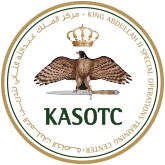Nebulas CTO Robin Zhong: "Super nodes lead to community splits", and three criteria for evaluating 'blockchain 3.0'
Nebulas CTO Robin Zhong: "Super nodes lead to community splits", and three criteria for evaluating 'blockchain 3.0'
Robin Zhong, the co-founder and CTO of Nebulas, a next generation public blockchain, participated in a panel discussion at the Blockchain Without Borders Summit in New York City. Speaking alongside Ronghui Gu, co-founder of Certik, and Huo Li, VP of Huoqiang, Robin touched upon the flaws in super-node, or distributed proof-of-stake (DPoS), systems implemented by some blockchain projects, and described three key criteria to define "Blockchain 3.0."
SAN FRANCISCO, May 29, 2018 /PRNewswire/ -- The New York stop of the Blockchain Without Borders Summit opened was held in Manhattan on May 13th. One of the opening summits of New York Blockchain Week, the event attracted top blockchain top players, investors and media from around the world. Nebulas co-founder and CTO Robin Zhong participated in the event, speaking on a panel alongside Ronghui Gu, co-founder of Certik, Huo Li, the vice president of Huoqiang and Golden Financial Partners, and more.
The esteemed panelists talked about "Super Node VS Blockchain 3.0" and debated the implementation of super nodes in blockchain, concurring that this model poses the risk of causing a split in a blockchain community. Moreover, the panelists pointed out that the legitimacy of a "blockchain 3.0" can be evaluated according to three criteria: developer-friendliness, upgrade-scalability, and return on value.
"Blockchain 3.0 needs to meet three conditions"
Thanks to the advent of tokens and blockchain-based data exchanges, blockchain will create a more fair economic model for users than the Internet, explained Robin. And by doing so, blockchain 3.0 will transform today's technological and economic models.
Technically, it should be safer and simpler, and scalable than previous models. Economically, it will put more emphasis on sustainable development."
More specifically, Robin believes that blockchain 3.0 needs to meet three conditions:
First, allow simple and convenient blockchain app development, to encourage the emergence of a blockchain app ecosystem similar to today's the Internet app ecosystem.
Second, functions can be rapidly expanded to respond to rapidly changing use cases.
Third, implement appropriate business model and economic model to ensure the system can grow for the long-term.
"There is little point talking about TPS without any actual apps."
While discussing the controversy of super node implementations, and whether EOS is a fitting representative for blockchain 3.0, Robin said that TPS is very important for blockchains, referencing Nebulas' performance of 2,000 TPS, which is 20 times superior to Ethereum's.
However, the argued that there is no point in talking about TPS if the use-cases -- and users -- on a blockchain to create these transactions aren't on the blockchain yet. In the current context, it's more important to devote resources towards incubating dapps that can attract users, and motivating collaborative development, to create a useful and thriving blockchain ecosystem.
"Supernodes may not be able to become the dominant business model in the future"
Gu Ronghui, co-founder of CertiK, believes that security issues with EOS don't just stop at with the large token holders (super nodes) and the level of code. Rather, community equity should also be taken into consideration. Zhong Kui Bai shared a similar opinion. Their concern is that super-nodes may have conflicting interests with the community or, put another way, it's possible that large capital's profit-seeking motivations will diverge from the community's long-term vision of developing the ecosystem. This can lead to project stagnation or worse consequences.
Therefore, blockchain projects that propose super-node schemes need to face this contradiction. Long-term development can only be achieved only if the projects help the community develop and give back to the community, and if the interests of the community are always consistent. Because of this difficulty, super nodes may not be able to become the dominant business model in the future.
"Blockchain 3.0 will be the phase of blockchain technology for general public"
Mainstream user adoption will finally happen during the blockchain 3.0-stage, Robin predicts, thanks to the arrival of killer apps. The recently-launched Nebulas Incentive Program is an example of an initiative that is trying to accelerate the arrival of this future. Nebulas is awarding 460,000 NAS bonuses to reward developers and promoters who contribute to the growth of the valuable killer apps. With this program, the hope is to incubate killer blockchain apps so that more people will adopt blockchain technology as quickly as possible.
As reflected in this program, Nebulas has a mechanism that allows developers to benefit directly from its blockchain, such that anyone who truly contributes to the blockchain system can earn substantial rewards.
About Nebulas:
Nebulas is a new generation public blockchain aiming at a continuously improving ecosystem. This blockchain proposes three core innovations:
1. Value Ranking
To enable value discovery in blockchain, Nebulas Rank measures multidimensional data in the blockchain world, and powers the platform's decentralized search framework.
2. Self-evolution
To avoid the damage caused by forking to the blockchain, Nebulas Force enables rapid iteration and upgradability to its blockchain without the need for hard forks.
3. Native incentive
With forward-looking incentive and consensus mechanisms, Nebulas Incentive rewards developers and users who contribute to the sustainability and growth of the ecosystem.
CONTACT: Becky, +86-136-8188-3060
View original content:http://www.prnewswire.com/news-releases/nebulas-cto-robin-zhong-super-nodes-lead-to-community-splits-and-three-criteria-for-evaluating-blockchain-3-0-300655609.html
SOURCE Nebulas




